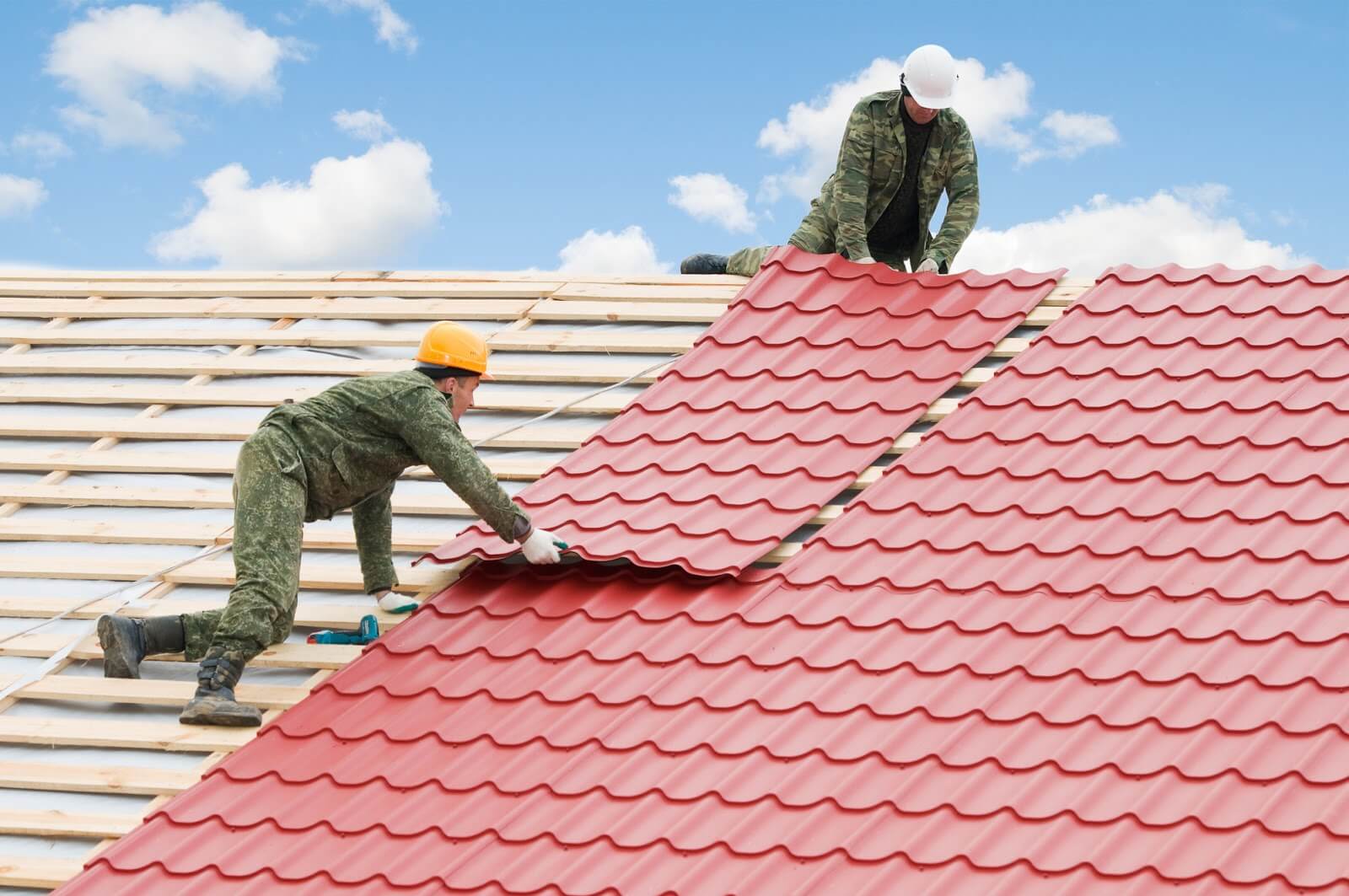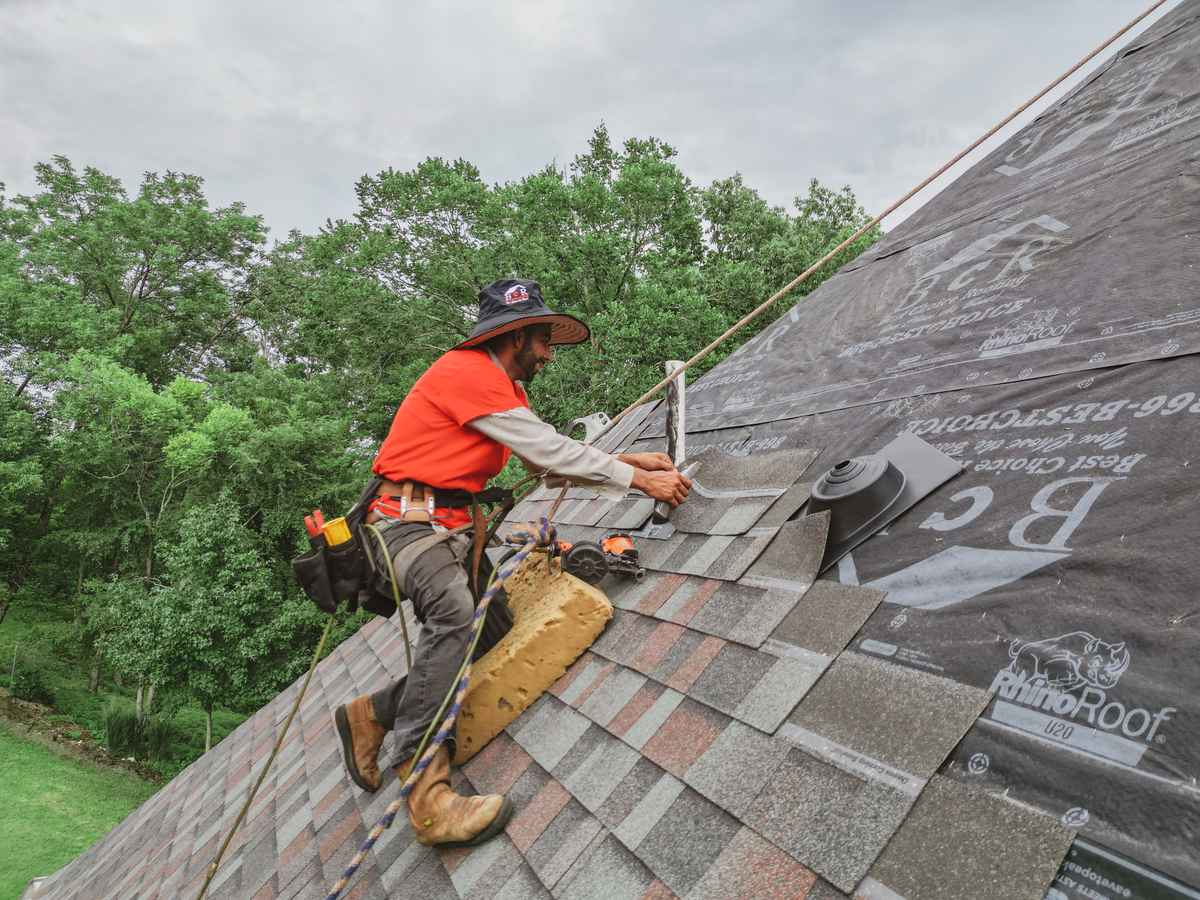The Best Strategy To Use For Roofing Repairs
The Best Strategy To Use For Roofing Repairs
Blog Article
Roof Repair Baltimore City: Specialist Roofing System Repair Providers To Fix Leaks And Damage Effectively
Checking Out Numerous Kinds Of Roof Repairs
Ever looked at a mysterious dark patch on your roof and wondered, " What's truly going on up there?" In some cases, determining the ideal kind of roof repair work is like detective work, unraveling hints left by the weather, time, and wear. From subtle leaks to glaring damages, each repair type narrates.

Common Roofing Repair Work Unveiled
- Leak Repairs: The tricky culprits-- small cracks or holes where water insinuates. Neglecting them can turn a moderate hassle into a costly problem.
- Shingle Replacement: Missing or broken shingles aren't simply an eyesore; they're invitations for water damage and insects.
- Flashing Repair work: Those metal strips around chimneys and vents? When damaged, they become gateways for leaks.
- Roofing Vent Repairs: Appropriate ventilation keeps your attic dry and your energy expenses low. When vents fail, the roofing suffers calmly.
When Small Repairs Make a Big Difference
Think of a good friend who neglected a minor roofing system leakage, believing it was no big deal-- until a storm hit, turning a drip into a deluge inside their home. This anecdote underscores why prompt repairs matter. The right repair might be as basic as sealing a fracture or as involved as replacing a number of shingles. But how do you choose? Here's a fast decision guide:
| Issue | Typical Repair work | Indications to Watch For |
|---|---|---|
| Leakages | Sealant application or patching | Water spots on ceiling, mold development |
| Damaged Shingles | Shingle replacement | Missing granules, curling edges |
| Flashing Problems | Metal flashing repair work or replacement | Rust, separation from roof |
| Ventilation Concerns | Vent repair work or setup | Excessive attic heat, moisture buildup |
Does not the intricacy of roof repair work make you appreciate the craftsmanship behind a strong roofing system? Sometimes, a patchwork job isn't enough-- other times, a fast fix revives your entire roof system. What's clear is this: comprehending the types of repairs empowers homeowners to act decisively, protecting their investment before small fractures end up being large gorges.
Revealing the Vital Roof Repair Work Materials
When a roofing whispers indications of wear, the products you select for repairs can either extend its life or hasten its demise. Ever seen how a handful of loose shingles can result in a waterfall of leakages? That's the fragile dance in between asphalt shingles and weather's relentless attack. These shingles, frequently the first line of defense, are valued for their balance in between resilience and ease of setup. However be careful-- simply patching with mismatched shingles can turn a quick fix into a future headache.
Metal flashing frequently leaves notice until water spots appear on ceilings. Yet, this unassuming strip guards vulnerable joints where various roofing system areas satisfy. Flat Roof Replacements. A seasoned roofing professional understands to inspect and change corroded flashing before mold claims victory. It's the difference in between a minor repair and an expensive interior renovation
Products that Matter
| Material | Typical Use | Professional Pointer |
|---|---|---|
| Asphalt Shingles | Changing harmed or missing shingles | Match granule color and density for smooth mixing |
| Metal Flashing | Sealing roof joints and around chimneys | Usage corrosion-resistant metals and seal edges with roof cement |
| Roof Cement | Sealing small fractures and securing flashing | Apply while warm for finest adhesion and longevity |
| Roof Felt | Underlayment for moisture barrier | Essential carefully to prevent piercing the waterproof layer |
Have you ever questioned why some roofs seem to weather storms unscathed while others falter? The secret typically lies underneath the surface in the underlayment. Roof felt, a humble yet important product, acts as a second guard when shingles fail. Cutting corners here suggests welcoming wetness to slip in undetected. Here's a pro insight: always ensure the felt lies flat with no wrinkles; even a little bubble can trap moisture and cause premature rot.
- Examine fasteners-- loose nails can loosen up shingles and stir catastrophe.
- Use a multi-layer technique; combining materials increases resilience.
- Keep in mind, roofing cement is your good friend but not a cure-all; it's finest for area repair work.
In the world of roof repair work, accuracy with products transcends mere patchwork. It's a calculated symphony of texture, moisture control, and weather condition resistance. The next time you raise a shingle, ask yourself: does check here this repair honor the roofing's initial defense or merely paper over the cracks?
Evaluating the Damage with a Keen Eye
Ever climbed onto your roofing only to realize that what appeared like a small leakage might be concealing a maze of damaged shingles and deformed decking beneath? The first action in any roof repair is a precise examination. Walk the perimeter with care and try to find curled edges, dark areas, or granule loss on the shingles-- these subtle signs often whisper louder than an open hole. Don't simply glance; study the angles, because water seepage hardly ever reveals itself politely.
Gathering Products: The Accuracy of Preparation
Before rising the ladder, guarantee you have all the necessary tools at arm's reach. Picture the disappointment of balancing on a slanting surface, realizing you forgot your roof cement or roofing nails. Here's a checklist to keep helpful:
- Replacement shingles matching your existing roofing system
- Hammer and galvanized roof nails
- Roof cement or sealant
- Utility knife for accurate cuts
- Flat crowbar to remove damaged shingles
- Safety belt and non-slip shoes
Precision in Removal and Replacement
Removing harmed shingles needs both strength and finesse. Place the crowbar gently under the shingle, lifting nails without tearing nearby areas. One may be lured to tug forcefully, but steady leverage avoids additional destruction. When positioning brand-new shingles, stagger them correctly-- remember, a misaligned shingle can end up being a gateway for rainwater, welcoming leakages that slyly erode your home's structure over time.
Sealing the Offer: Preventing Future Leakages
Applying roofing cement isn't simply slathering tar; it's about producing a long lasting barrier. Dab a modest quantity under the shingle tabs and press strongly, guaranteeing a snug fit. Too much cement can split in the sun, too little invites wetness. Have you observed how some roofing systems endure storms untouched? That's the outcome of specialist sealing, a subtle art that changes basic fixes into long lasting protection.
Security Tips Every DIY Roofing Professional Should Swear By
- Never ever deal with a wet or windy day-- slips take place faster than you think.
- Use a durable ladder put on company ground and inspect its angle.
- Use gloves to safeguard your hands from sharp edges and nails.
- Keep a very first help set nearby; minor cuts can intensify if overlooked.
- Deal with a friend whenever possible-- roofings aren't a solo experience.
Why Trusting Professional Roofing Specialists Matters
Ever observed how an easy leakage can silently change into a catastrophe? Roof repairs require precision, and hiring beginners often results in patchwork services that collapse with the next storm. An expert specialist does not just slap on shingles; they diagnose the origin, whether it's used flashing, jeopardized underlayment, or hidden rot.
Envision climbing onto the roofing system yourself, equipped with a hammer and some nails, just to recognize you've aggravated the problem. The reality is, roofing damage isn't constantly visible from the ground or perhaps the attic. Experts wield wetness meters and infrared cams-- tools that expose the hidden. Would you trust your home's guard to uncertainty?
Key Advantages of Professional Roof Contractors
- Precise Evaluation: They identify subtle signs like granule loss or drooping decking that many miss.
- Code Compliance: Guaranteeing repairs meet regional structure codes, preventing future insurance headaches.
- Material Knowledge: Choosing the ideal products to match your roofing's distinct profile and environment obstacles.
- Safety First: Browsing high slopes and heights with appropriate harnesses and devices.
- Service warranty Assurance: Support repairs with assurances that safeguard your financial investment.

Expert Tips for Hiring the Right Roofer
- Confirm licensing and insurance-- don't gamble with unverified qualifications.
- Ask for an in-depth written quote outlining scope and materials.
- Inquire about their procedure for addressing covert damage discovered throughout repairs.
- Inspect how they handle debris elimination-- roofing work should not leave a mess behind.
- Verify experience with your specific roof type, whether asphalt, metal, or tile.
In roofing repair work, faster ways often cost more in the long run. The professionals know when to fix, when to replace, and how to extend your roofing's life-span. Isn't it better to secure your home's very first line of defense with those who see beyond the surface?
Expert Roof Fixes in Baltimore County
Baltimore County is a dynamic location understood for its varied communities and abundant history. With a population that takes pleasure in a mix of rural and urban living, the county provides attractions like the scenic Loch Raven Reservoir and the lively Towson Town. Residents gain from a strong regional economy and access to quality public parks and cultural events, making it a desirable location to live and work.
For trusted guidance and a complimentary consultation on roofing repair work, think about reaching out to CRG Roofing and Siding. They offer skilled assistance customized to your needs and assist guarantee your roofing remains in exceptional condition.
Report this page